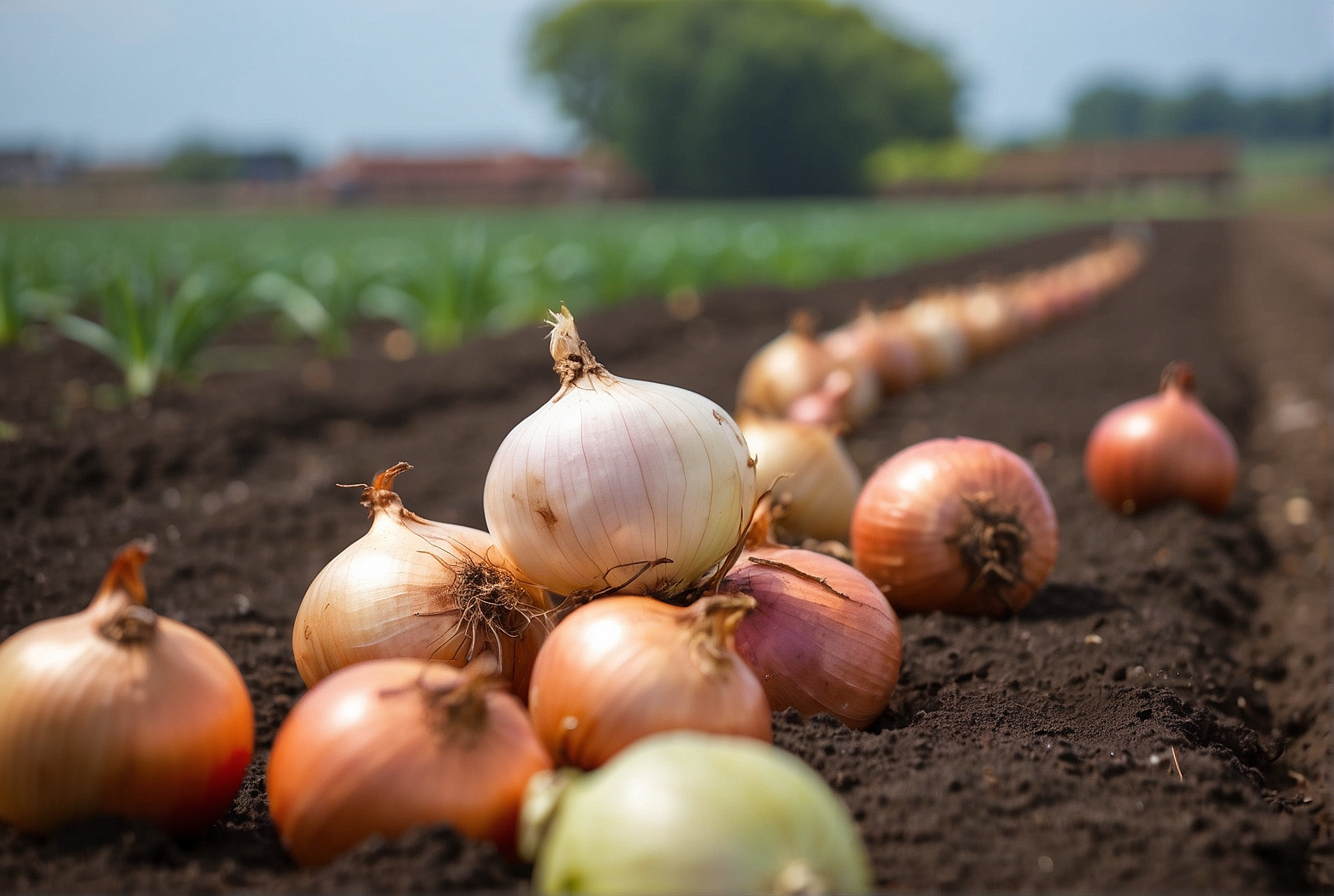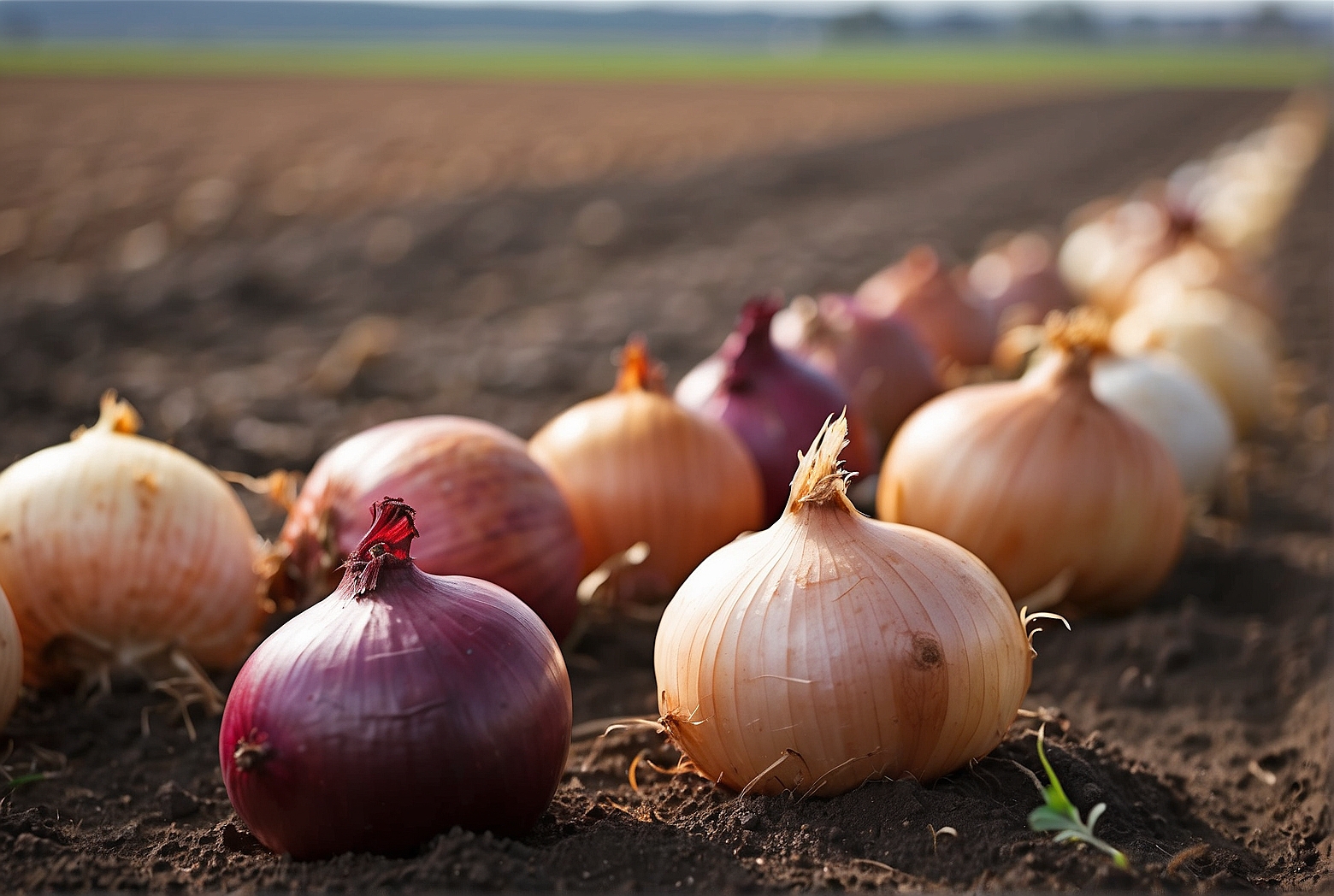Last Updated on March 27, 2024 by Fabiola L.
Onions are a favorite vegetable to many gardeners, and as a beginner, you might be wondering when should onions be planted. Onions are used all around the world as a food, but also as a home remedy of sorts. In today’s article, we’ll be learning when and how to plant onions, how to grow them, store them and keep them healthy.
When To Plant Onions?
When it comes to planting onions, there are actually a few different roads you can choose to go down. Some gardeners choose to plant their onions in the fall, while others do it in the spring. To get the plant to set, you need the weather to be cool.
If you decide to plant onions in the fall, keep in mind that they should get at least 4 weeks of temperatures that aren't cold. This way, they'll get established in the ground before winter starts and they'll be able to make it through the winter so they can successfully grow in the spring.
It might be better to plant your onions in the spring if the winters in your area are particularly harsh. Plant them as soon as the frost lets up and allows you to work on the soil.
When you have to decide do you plant onions in the fall or spring, remember that the harvest in the spring is definitely going to be plentiful. Onions will lay dormant in the ground during the winter and they'll be ready to grow as soon as the temperatures allow them so!
How to Plant Onions?
Onions come in bulbs, these are called sets, and they're the easiest way of onion planting. You can also plant onions in the form of transplants and seeds, but most gardeners prefer using sets.
To plant a set of onions, take sets that are less than an inch wide (in diameter) and plant them 4 inches apart. If the sets are particularly small, you can plant them 2 inches apart. The pointy end of the bulb should be pointing upwards - cover them with an inch of soil.
That's it! One of the best things about onions is how little care they need and how simple they are to plant and take care of!
How to Care for Onions?
Onions need very little care. If you've planted them correctly, you've most likely done more than enough to grow them successfully! They need very little watering, for example. If there are regular amounts of rain in your area, you don't need to water them at all. You should only water your onions if you live in a particularly dry area, and you only need an inch for every square foot once a week.
When it comes to fertilization, you should fertilize once a month if you want to get big onion bulbs. When you see that the process of bulbing is starting, you can stop with the fertilization and remove the soil from around the onions. The vegetable will start to emerge from underground and it will start pushing the soil around it - don't put that soil back on the onion.
Most gardeners will recommend the use of straw as mulch - you should only apply it once the bulbs start to develop. This will help the onion retain moisture and help with ventilation.
How to Harvest Onions?
Onions should be more than ready for you to harvest them in early summer if you planted them in the fall, while spring-planted onions are usually ready for the harvest in early fall. Because of these periods, many gardeners plant onions in both fall and spring - that way, they have enough onions for the entire year.
Onions can be simply taken out from the ground - if you can't do it by hand, you can use a fork to help yourself.
Since you won't eat them all at once, you're going to have to store your onions. They like to be dried out in the sun for a few weeks before you actually store them. To store them after drying, use net bags and keep them in a well-ventilated area with some light. Don't be freaked out to see the bulbs sprouting, this is especially likely to happen if you keep them in an area with low light and poor ventilation.
Do Onions Suffer From Health Issues?
Onions aren't prone to illnesses, but can easily contract pest. The Onion Fly, for example, is an insect that will lay eggs around the base of the onion where the larvae of the fly will hatch. They'll then start eating the bulb - you can recognize an infestation by yellow, wilted leaves.
They're also prone to Onion White Rot, which is a type of fungus that's particularly damaging to onions. It's likely that your onions will rot if they contract this fungus. There's still no chemical solution to take care of this problem and it's just best to avoid problematic soil.
An interesting phenomenon that's sometimes evident with onions is bolting. Bolting is a occurrence of the plant producing flowers instead of developing the bulb. It's likely that this is caused by odd weather patterns - sudden bursts of heat, followed by drops in the temperature. Some gardeners use fleece to protect their onions from sudden breaks of cooler temperatures during the spring.
To sum up, you can plant your onions in both the spring and the fall. Many gardeners prefer to plant their onion in both of these seasons, as they can have a year-round supply of onions that way. If you’re wondering how late can you plant onions, know that they should have at least 4 weeks under the ground to prepare themselves for the winter. During the winter, an onion will hibernate and continue the growth in spring. Onions usually need very little care – they rarely need water (unless you live in a particularly dry area), and they need fertilization for only a short period of time.




